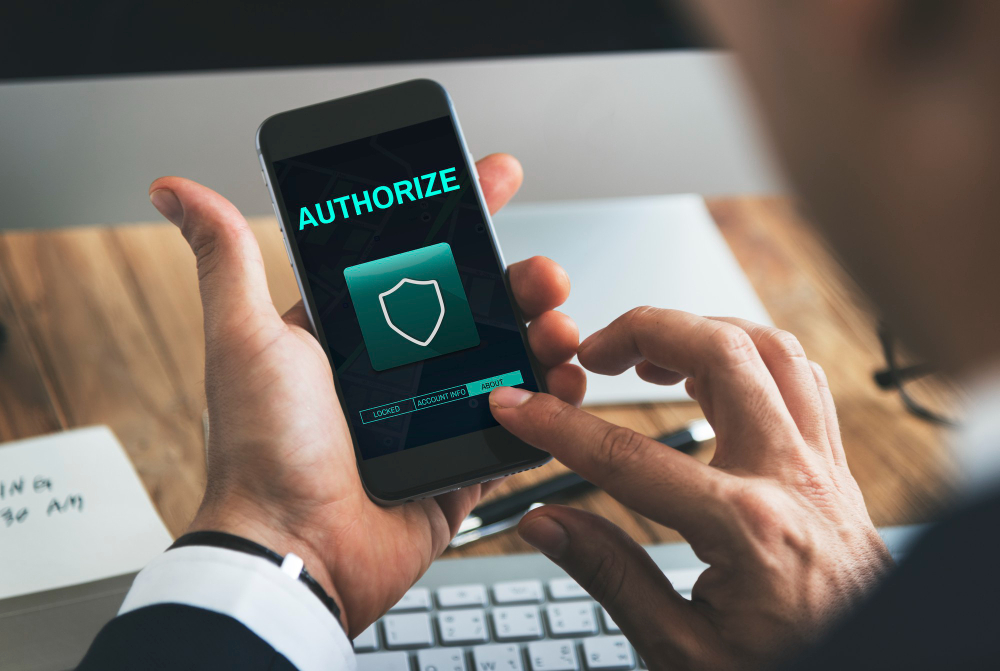In today’s digital era, safeguarding personal information online is crucial. With increased internet usage in India, incidents of data breaches and cybercrimes have also surged. From online banking to social media, your data is vulnerable to hackers if not properly secured. This guide by mistyinfo.com outlines essential steps Indian users can take to safeguard their online presence, protect personal information, and enjoy a safer digital experience.
How to Secure Your Online Data: Tips for Indian Users by mistyinfo.com
1. Create Strong, Unique Passwords for Every Account
Passwords are the first line of defense in protecting your online accounts, yet they are often the weakest. Many people reuse passwords across multiple platforms, which puts their information at risk if one account is compromised. Here are some best practices for creating secure passwords:
- Combine Letters, Numbers, and Symbols: A strong password includes a mix of uppercase and lowercase letters, numbers, and symbols. Avoid using predictable words, dates, or names.
- Use Long Passwords: Strive for a minimum of 12 characters. The longer the password, the harder it is for hackers to breach.
- Avoid Reusing Passwords: Each online account should have a unique password. If remembering multiple passwords is difficult, consider using a reliable password manager.
2. Activate Two-Factor Authentication (2FA)
Two-factor authentication (2FA) adds an extra layer of security by requiring two forms of verification before granting access to an account. This makes it harder for unauthorized users to access your account, even if they have your password.
- Set Up 2FA for Important Accounts: Enable 2FA for your email, banking, and social media accounts.Common 2FA methods include SMS codes, authentication apps, and biometric verification, such as fingerprints.
- Avoid Using SMS 2FA Alone: While SMS-based 2FA is popular, it’s vulnerable to SIM-swapping attacks. Whenever possible, use authentication apps like Google Authenticator, Microsoft Authenticator, or OTPs via email.
3. Be Cautious of Phishing Scams
Phishing is a method used by cybercriminals to trick users into revealing sensitive information. Phishing attacks are common in India, where scammers often disguise themselves as reputable organizations to steal data.
- Identify Phishing Emails and Messages: Look for signs like misspelled words, generic greetings, or suspicious links. Scammers often pose as banks, government agencies, or even friends and family members.
- Verify Before You Click: Don’t click on links or download attachments from unknown sources. If you receive an unexpected email or message, contact the official organization directly to verify its legitimacy.
- Use Anti-Phishing Software: Many security software programs, like Norton, Kaspersky, and Quick Heal, offer anti-phishing tools to detect and block potential scams.
4. Utilize a Virtual Private Network (VPN)
A VPN is a tool that encrypts your internet connection, making it difficult for hackers to intercept your data. It masks your IP address and hides your online activity, offering an added layer of privacy.
- Choose a Reliable VPN Service: Avoid free VPN services, as they may compromise your privacy by logging and selling your data. Trusted VPNs like ExpressVPN, NordVPN, and Surfshark provide strong encryption and are ideal for online security.
- Enable VPN on Public Networks: Always use a VPN when connected to public Wi-Fi networks, such as those in cafes, airports, or malls. Public networks are common targets for hackers due to their low security.
5. Keep Software and Devices Updated
Software updates often include security patches that fix vulnerabilities, making it essential to keep your devices and apps updated.
- Enable Automatic Updates: Enable automatic updates for your operating system, apps, and antivirus software to ensure you always have the latest security patches.
- Update Frequently Used Apps: Apps used for communication, banking, and shopping are especially important to update regularly, as they contain sensitive information.
- Delete Unused Apps: Unused apps can be an entry point for hackers, especially if they’re outdated. Periodically review and remove apps that you no longer use.
6. Secure Your Social Media Accounts
Social media platforms are often targeted by cybercriminals, as they can be a source of valuable personal information. Ensuring your social media accounts are secure is crucial.
- Set Strong Privacy Settings: Review your privacy settings on platforms like Facebook, Instagram, and Twitter. Limit who can view your posts and personal information.
- Be Discerning with Friend Requests: Only accept requests from individuals you know. Fake accounts can be used to steal information or trick you into revealing sensitive data.
- Avoid Sharing Sensitive Information: Avoid posting information like your location, phone number, or details about your family members, as these can be used by cybercriminals.
7. Back Up Important Data Regularly
Data backup is essential for recovering your files in case of a cyberattack, hardware failure, or accidental deletion. Regular backups ensure you can quickly restore your data if it’s lost.
- Use Cloud and Local Backups: Consider both cloud services (like Google Drive or Dropbox) and external hard drives for backups. This way, you have multiple copies in case one is compromised.
- Set Automatic Backup Schedules: Automate your backups to ensure they’re performed regularly without needing to remember manually.
- Encrypt Backup Files: Encryption adds an additional layer of security, especially for sensitive files. Many cloud services offer encryption options, and local files can be encrypted using software like BitLocker or VeraCrypt.
8. Educate Yourself and Stay Updated on Cybersecurity Practices
Cybersecurity is a constantly evolving field, with new threats emerging frequently. Keeping yourself informed is one of the best ways to stay protected.
- Follow Trusted Cybersecurity Blogs: Websites like mistyinfo.com and cybersecurity news portals are excellent resources for staying updated on online safety practices.
- Take Online Courses: Platforms like Coursera and Udemy offer free courses on cybersecurity basics, which can be helpful for learning how to protect yourself and your family online.
- Stay Aware of Current Scams: Knowledge of common scams, such as recent phishing trends or SMS frauds, can help you recognize and avoid potential threats.
9. Use Secure Payment Options
When shopping or banking online, always choose secure payment options and follow best practices to protect your financial information.
- Prefer Credit Over Debit Cards: Credit cards generally offer more protection against fraud than debit cards. Some credit cards even offer chargeback options for unauthorized transactions.
- Enable Payment Notifications: Most banks offer SMS or email notifications for transactions, which helps you stay informed of any unusual activity.
- Only Use Secure Websites: Look for “https” in the URL and a padlock symbol in the browser address bar when making online payments. These signals show that the website employs encryption to safeguard your data.
10. Monitor Your Accounts Regularly
Finally, keep a close eye on your online accounts for any unusual activity. Quick detection can prevent a minor security breach from becoming a major issue.
- Set Up Alerts for Unusual Activity: Many banks and online services allow you to set alerts for suspicious login attempts or transactions.
- Review Your Bank Statements: Regularly check your bank and credit card statements for unauthorized transactions. The quicker you identify an issue, the easier it is to address.
- Change Passwords Regularly: Even with robust passwords, updating them periodically provides an additional layer of security.
Final Verdict
Securing your online data doesn’t have to be complicated, but it does require some awareness and routine practices. Following these tips from mistyinfo.com will help you safeguard your personal information and enjoy a safer online experience. By staying vigilant and implementing these strategies, Indian users can reduce the risk of cyber threats and keep their digital lives protected.



